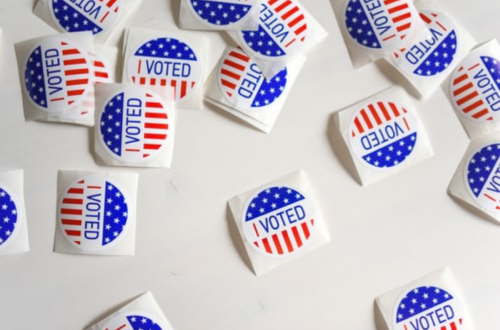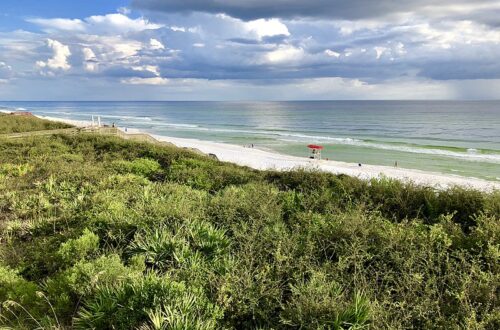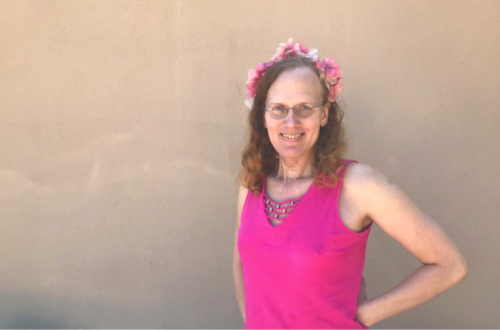It may be surprising to some that there are still places where the sale of liquor is completely illegal in a state widely known for its rowdy spring breakers and Jimmy Buffett’s “Margaritaville.”
Yet Prohibition had once been popular across rural Florida. In fact, it was so popular that Florida’s only governor who was not a Democrat from 1877 to 1967 was a member of the Prohibition Party. When the 21st Amendment repealed the 18th Amendment, many counties, especially in the Panhandle, kept their restrictive liquor laws in place — some even to this day.
These jurisdictions are known as “dry counties,” places where the sale of alcohol, especially liquor, is still prohibited. Only three dry counties remain in the state: Lafayette County in North Central Florida, and Liberty and Washington counties in the Panhandle.
Now, a campaign to make Washington “wet” is emerging. The political action committee Advance Washington County (AWC) has mailed a petition to registered voters calling for a referendum “to determine whether the sale of intoxicating liquors, wine or beer containing more than 6.243% by volume” shall be permitted in the county.
If AWC’s petition receives 4,200 signatures, it will be on the ballot during the county’s next elections.
“We have the ability to sell beer, but no hard alcohol, and we’ve had people throughout the years express a desire to change that,” Ted Everett explained to the Florida Political Review.
Everett serves as the executive director of the Washington County Chamber of Commerce, Economic Development Council, and the Chipley Community Redevelopment Agency (the latter of which is not attached to this initiative).
“We thought the decision should be made by the citizens of Washington County,” he says. “So we put together a political action committee, Advance Washington County.”
The leadership of AWC is largely drawn from the business community, a reflection of the campaign’s core focus—economic development.
“There are some truck stops and some businesses that will not come to your county if you’re dry,” Everett says. “You can think of your national food chains like Applebee’s, T.G.I. Friday’s, or any of those. They’re not going to come and set up shop here because they won’t be able to sell alcohol by the glass, and that’s a large part of their profit.”
If the referendum occurs, it will ask two questions: whether voters support allowing packaged liquor stores, and whether they support the sale of liquor by the glass in restaurants.
The campaign is not unprecedented. In 2011, residents of Suwannee County voted to become wet. Madison County followed suit in 2012.
A similar initiative occurred in Washington County in 2009, shortly before Suwannee and Madison became wet, but it failed to gain enough public support. That effort, led by a similarly minded group called Citizens for Economic Opportunity, was opposed by the Citizens for Positive Development of Washington County.
Citizens for Positive Development is still listed as “active” on the county supervisor of elections website, but it does not appear to have a website or public presence. However, a page called “Washington County Florida Citizens for Positive Growth” exists on Facebook, with posts as recent as July 28, 2021, criticizing efforts to legalize liquor.
Although the page has contact information listed, Florida Political Review was unable to reach a representative. It is unclear whether the page and the registered political committee are affiliated.
“We are a Christian community,” the page’s pinned post reads. “Our leaders have decided to push this initiative. We are working to defeat the initiative. God Bless Washington County and God Bless America.”
Other posts cite Bible verses, invoke religious themes, and include pictures of Jesus to condemn the morality of alcohol. However, some supporters of the initiative say this does not need to be a moral argument at all.
“We’re not trying to tell people they should drink or shouldn’t drink,” said Elijah Hooks, who sits on the Chipley CRA along with Everett and is the Washington County state committeeman for the Florida Democratic Party. At 19, Hooks is the youngest member of both the CRA and the Democratic state committee.
He told the Florida Political Review that, like many supporters of the petition, he is a devout Christian who felt the moralistic arguments against alcohol were outdated.
“It’s people who want to stay in the same way of life,” he says. “They’re just not really used to change.”
Like Everett, Hooks believes the question is about the future growth of the county. He noted that even young people like himself who are not of legal drinking age would benefit from the arrival of new venues like bowling alleys or skating rinks, which do not exist in Washington County currently.
Hooks is confident that this campaign will be more successful than its predecessor in 2009 due to new platforms to share information and a renewed focus on economic development in the community.
Everett added that attitudes have changed, new people have moved to the community, and the initiative is better funded and organized than before.
“You have more economic development when you have a wet county,” he says. “We are simply asking the citizens of Washington County to determine what they want for Washington County, and the only way to do that is to put it under a referendum.”
Check out other recent articles from Florida Political Review here.
Featured Image: An array of liquor bottles. Unmodified photo used under a Creative Commons License. (https://bit.ly/3gkgWzd)






One Comment
James Brooks
I manage the page you referenced in your article. May I share the article on my page. Washington County Florida Citizens for Positive Growth. You got one side of the story. You need to tell ours.